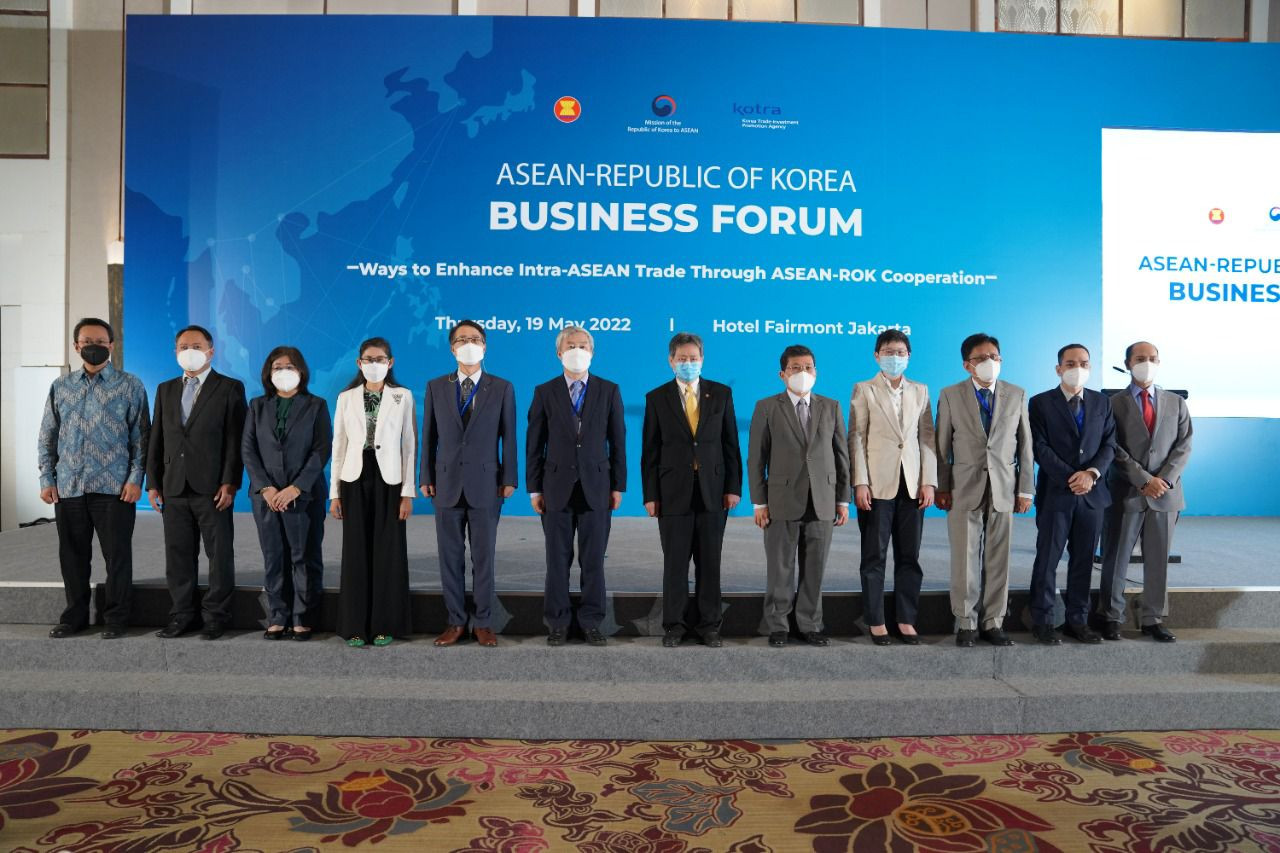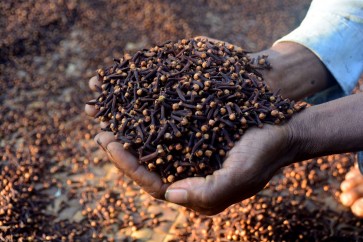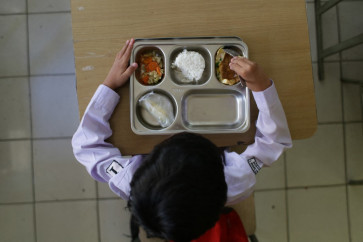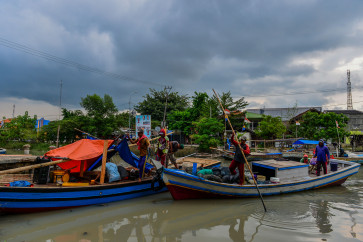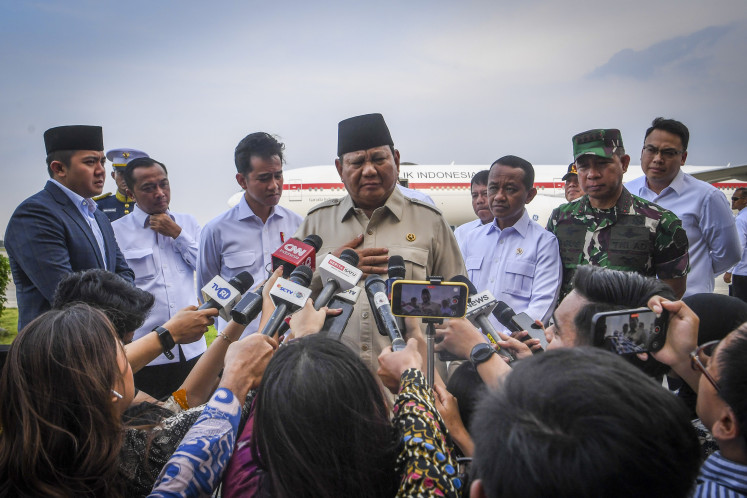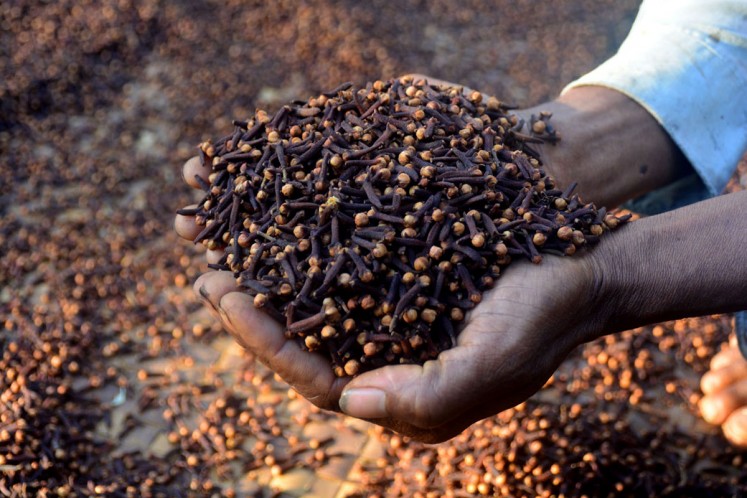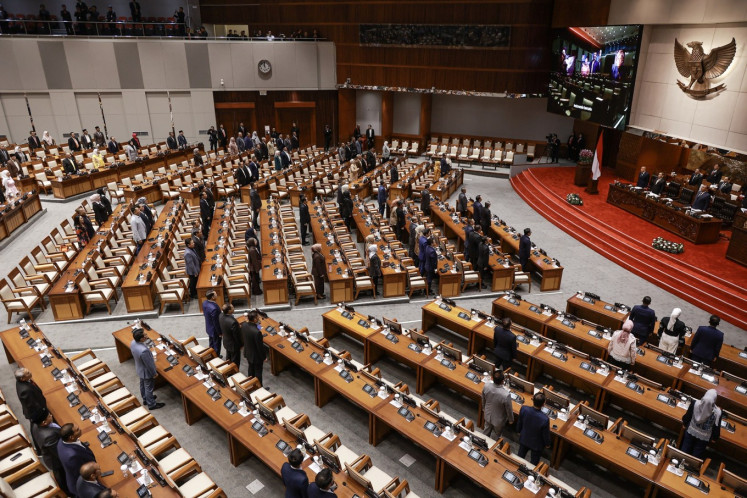Popular Reads
Top Results
Can't find what you're looking for?
View all search resultsPopular Reads
Top Results
Can't find what you're looking for?
View all search resultsKrakatau Posco’s $3.5 billion steel mill project to finish construction by 2027
Joint venture aimed to build an EV value chain in Indonesia by supplying battery materials and EV auto steel from South Korean steel giant Posco.
Change text size
Gift Premium Articles
to Anyone
S
teelmaker PT Krakatau Posco, in cooperation with state-owned PT Krakatau Steel (KRAS), is set to expand to the second phase of an integrated steel mill project in a bid to capture the Southeast Asian electric vehicle (EV) market.
The steel mill project, which will include a blast furnace, is worth approximately US$3.5 billion and is expected to finish construction in 2027. It is part of both companies’ efforts to establish a steel complex with an annual output of 10 million tons in Cilegon, Banten.
Choi Busik, senior economist at Posco Research Institute, said the joint venture aimed to build an EV value chain in Indonesia by supplying battery materials and EV auto steel from South Korean steel giant Posco.
“To serve Indonesia and the ASEAN market, Krakatau Posco will expand to the second phase,” he said at the ASEAN-Republic of Korea Business Forum in Jakarta on Thursday.
Krakatau Posco, established in 2010, is 70 percent owned by Posco and 30 percent owned by KRAS.
Read also: Hot stripped mill to be operational by 2019
Busik said that after the second phase of the expansion, Krakatau Posco would provide most of the semi-finished products to the company’s operations across Southeast Asia.
In the long run, the company plans to add green steel production capacity, Busik said. Green steel uses hydrogen gas instead of fossil fuels in its production to cut greenhouse gas emissions.
Read also: Indonesia begins electric car production with Hyundai plant
Speaking at the same event, Junheang Heo, vice president and head of the Hyundai Motor Asia Pacific sales group, said Hyundai would contribute to building the battery ecosystem and establish an EV production hub in Indonesia for the Southeast Asian market.
Hyundai launched the first electric car assembly plant in Indonesia earlier this year, as the country looks to exploit an abundance of resources used in EV production.
Indonesia is the world's largest nickel producer and is also rich in cobalt, bauxite and copper ores, key materials in the manufacture of batteries for electric cars.
President Joko “Jokowi” Widodo has said his government aims to establish an integrated EV ecosystem ranging from metals mining to battery production and car assembly. The Hyundai factory will produce the firm's newest model, the IONIQ 5, with an annual capacity of 250,000 vehicles.
Read also: How Southeast Asia is getting ready for the EV revolution
“[We believe] tax benefits and support from major ASEAN countries such as Indonesia, Thailand, Malaysia, Vietnam and the Philippines would be able to level up local production and assembly industries,” said Junheang Heo.
The company currently has the capacity to produce 510,000 EVs annually in Southeast Asia, with Indonesia, Vietnam and Malaysia housing the largest capacities at 250,000 units, 150,000 units and 30,000 units, respectively.
Indonesia is the biggest automotive market in Southeast Asia, with demand forecast to grow 65 percent from 2021 to 2030, reaching 126.6 million vehicles.
Other Southeast Asian countries with significant expected demand growth are the Philippines and Thailand at 105 percent and 75 percent, respectively, to 55.3 million vehicles and 126.3 million vehicles in the same timeframe.
KRAS invests in Krakatau Posco
KRAS is set to increase its stake in Krakatau Posco from 30 percent to 50 percent in a $308 million investment plan to tighten the state’s hold over the domestic steel industry.
The company will take 422,800 new Series B shares, with a nominal value of $516 per share, in Krakatau Posco, KRAS management said in a statement published through the Indonesian Stock Exchange (IDX) on May 17.
“The increase in Krakatau Steel's shares in [Krakatau Posco] is a very good strategic step to strengthen the national steel industry position in facing global competition and supporting [the domestic] steel and automotive industry ecosystem,” State-owned Enterprises (SOEs) Minister Erick Thohir said in a statement issued on Thursday.

